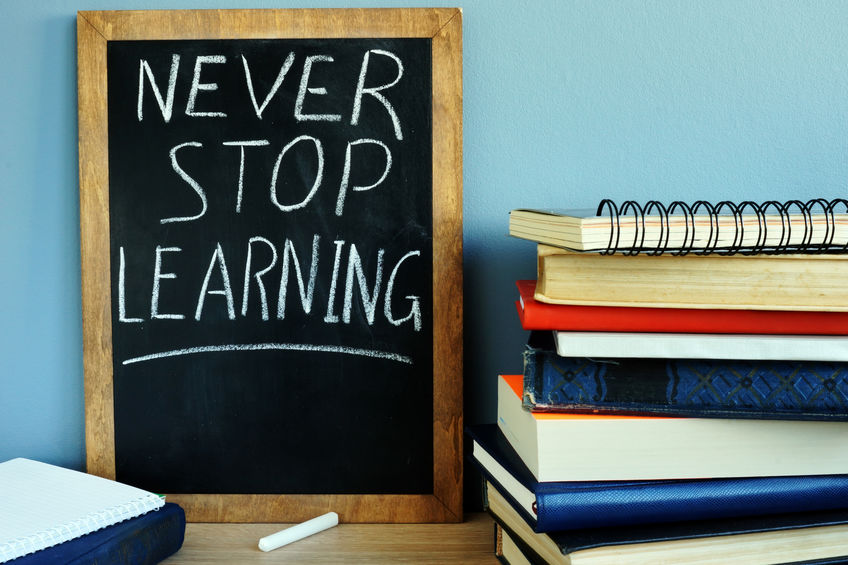The primary purpose of education isn’t to impart knowledge. Instead, its purpose is to teach you how to learn.
Does that concept sound like the utterings of a ninja master to his young apprentice?
For sure!
And at first look, it may even sound nonsensical. After all, when we think of K-12 schooling or a college education, our thoughts immediately turn to mastering grammar or memorizing equations in mathematics.
But particularly in our modern economy that is so knowledge-based and rapidly changing, the ability to be a lifelong learner is crucial. Graduating from school with mastery of a set of information is important, but what’s more crucial is leaving with a toolbox of resources for ongoing learning.
“The most critical role for K-12 educators … will be to equip young people with the curiosity and passion to be lifelong learners who feel ownership over their education,” writes columnist Thomas Friedman in The New York Times. Or, as business expert Peter Drucker put it, “The most pressing task is to teach people how to learn.”
An advantage for homeschoolers
Lifelong learning is mandatory for homeschool graduates if you want to be successful in your career and your life. Most areas of our economy change rapidly—often from year to year, but definitely from decade to decade. This is particularly true of technical occupations. So in this way, how far you go in your career is dependent on how well you learn new skills and concepts along the way, not just in school.
The great news is that homeschoolers are accustomed to taking responsibility for their own learning, especially in the high school years. You already have a strong foundation for becoming a lifelong learner.
To help you cultivate that ability even more, here are 5 tips to put into practice for 2021.
1. Stay curious
Curiosity is the foundation of lifelong learning. To cultivate curiosity, ask plenty of questions and listen carefully to the answers. Aim to read two books a month, and keep a running list of books you would like to read in the near future. Step out of your comfort zone and seek to solve complicated, even thorny problems.
2. Be humble and teachable
It goes without saying that teachability ranks high on the list of attributes of genuine lifelong learners. Understand that no matter how advanced you get in a given area of life, you’ve never fully arrived. You can always learn more. That level of humility will serve you well.
3. Accept responsibility for your own learning
Homeschoolers have a big advantage in this area. Self-directed learning is a hallmark of home-education for high school students. The flexibility of homeschooling—existing outside the rigid structure of a traditional classroom environment—helps students more easily own their educational outcomes and not rely on teachers to learn everything. As a homeschool graduate, take that same sense of responsibility for your own learning with you as you launch into adult life.
4. Launch a major project
Personally, I find this one of the best ways to practice the art of lifelong learning. Envisioning and launching a larger scale project—it could be a business, a personal hobby, or something entirely different—is an excellent way to keep your mental faculties sharp and to stretch the boundaries of what you think is possible.
5. Schedule time in your week for ongoing learning
I set a goal in 2021 to read 10 self-improvement books. Creating a benchmark like this is a good place to start, but lifelong learning will look different for each person. Maybe for you it means mastering a new hobby, earning a certification online, or attending a workshop. Remember, as the great inspirational writer and speaker Dale Carnegie said, “Learning is an active process. We learn by doing. Only knowledge that is used sticks in your mind.”








Leave A Comment